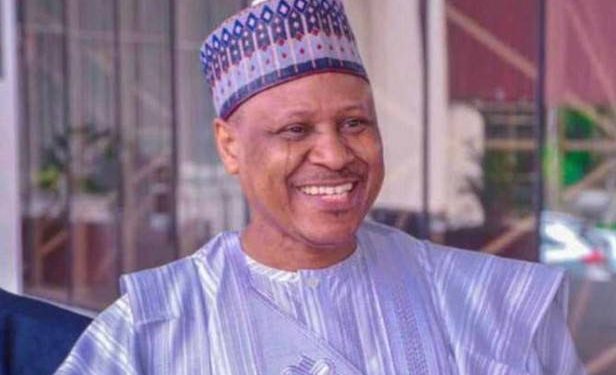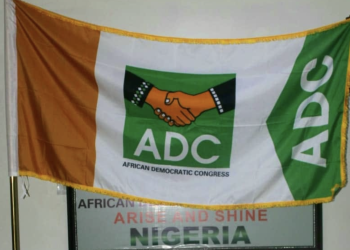The federal government Thursday said over 350,000 of the 600,000 applicants have benefited from the N70 billion Nigeria Education Loan Fund (NELFUND).
It also described the Renewed Hope Agenda of President Bola Ahmed Tinubu as a practical framework for national transformation, built on measurable programmes for prosperity across sectors of the Nigerian economy.
The Minister of Information and National Orientation, Mohammed Idris, made the statement in Minna, Niger state, at the Conference of Commissioners for Information in APC states, organised by the Progressive Governors’ Forum.
He had made similar statement when members of the Nigeria Guild of Editors (NGE) presented their thoughts on constitutional reforms especially as it relates to issues which hamper press freedom.
At Minna, the Minister further stated that “over 900,000 small businesses have already benefited from the Presidential Conditional Grant and Loan Scheme, while over 350,000 students are currently benefiting from the Students’ Loan Scheme, ensuring no young Nigerian is left behind due to financial constraints.
Idris said that the federal government has so far committed approximately N70 billion to the Students Loan Scheme, with over 600,000 applications seeking to benefit from the initiative.
A statement by the minister’s media aide, Rabiu Ibrahim, quoted him as also saying: “The Renewed Hope Agenda goes beyond macroeconomic reforms. It is about creating concrete opportunities for prosperity across sectors – for individuals, for families, and for communities.
“From massive infrastructure investments to youth empowerment programmes and reforms in agriculture, energy, education, and innovation, the Tinubu administration is delivering a broad-based plan for inclusive growth and national renewal”.
Highlighting government’s reform efforts, the minister made references to the removal of the fuel subsidy as a pivotal policy shift that resolved a lot, including unbridled corruption.
“One of the boldest and most consequential decisions of this administration, which is the removal of the fuel subsidy, was a painful but necessary reform.
“Beyond saving the economy from fiscal collapse, this decision has significantly blocked areas of leakage and waste in our economy, thereby leading to an increase in funding for the development of mega infrastructure.
“The gains from such bold decisions are now funding transformative infrastructure projects like the Lagos-Calabar Coastal Superhighway, Sokoto-Badagry Superhighway, Kaduna-Kano Standard Gauge Railway, and the Abuja-Kaduna-Kano Expressway.
“There is a steady investment in the provision of social services in the country and a marked increase in monthly allocations to state governments, which is enabling them to embark on projects that are already having transformative impacts across sectors at the state and local government levels”.
Idris said the Ajaokuta-Kaduna-Kano (AKK) Gas Pipeline Project was progressing steadily in order to deliver power to jumpstart industrial revolution across the corridor.
Also, the minister listed other gains and achievements to include the recapitalisation of the Bank of Agriculture to the tune of ₦1.5 trillion, unlocking financing for farmers, agripreneurs, and the agro-industrial value chain.
On the Sector-Specific Growth Drivers, the minister said: “The creation of the Ministry of Livestock Development by President Bola Ahmed Tinubu is a visionary step toward turning a long-neglected sector into a potential ₦30 trillion economy that can create jobs, boost self-sufficiency in dairy and associated products, reduce farmer-herder clashes, and scale up exports as well as foreign exchange earnings.”
He explained that Tinubu “did not embark on his presidential campaign with lofty slogans but presented to Nigerians a well-thought-out Eight-Point Renewed Hope Agenda, which is a blueprint for economic revitalisation, national development, and inclusive growth.”
The minister also said “the agenda is now being steadily implemented across Ministries, Departments, and Agencies, with discipline, prudence, fortitude, and a deep commitment to the welfare of Nigerians.
“The country is also witnessing steady investment in the provision of social services and the increase in monthly allocations to state governments, which is enabling them to embark on projects that are already having transformative impacts across sectors – from roads to schools, hospitals to agriculture.”
*Host commissioner’s remarks
In his remarks, the Niger State Commissioner for Information and Strategy, Binta Mamman, explained that Gov. Mohammed Umaru Bago has deployed communication as a tool for development, accountability and mobilisation for the delivery of the New Niger Agenda.









